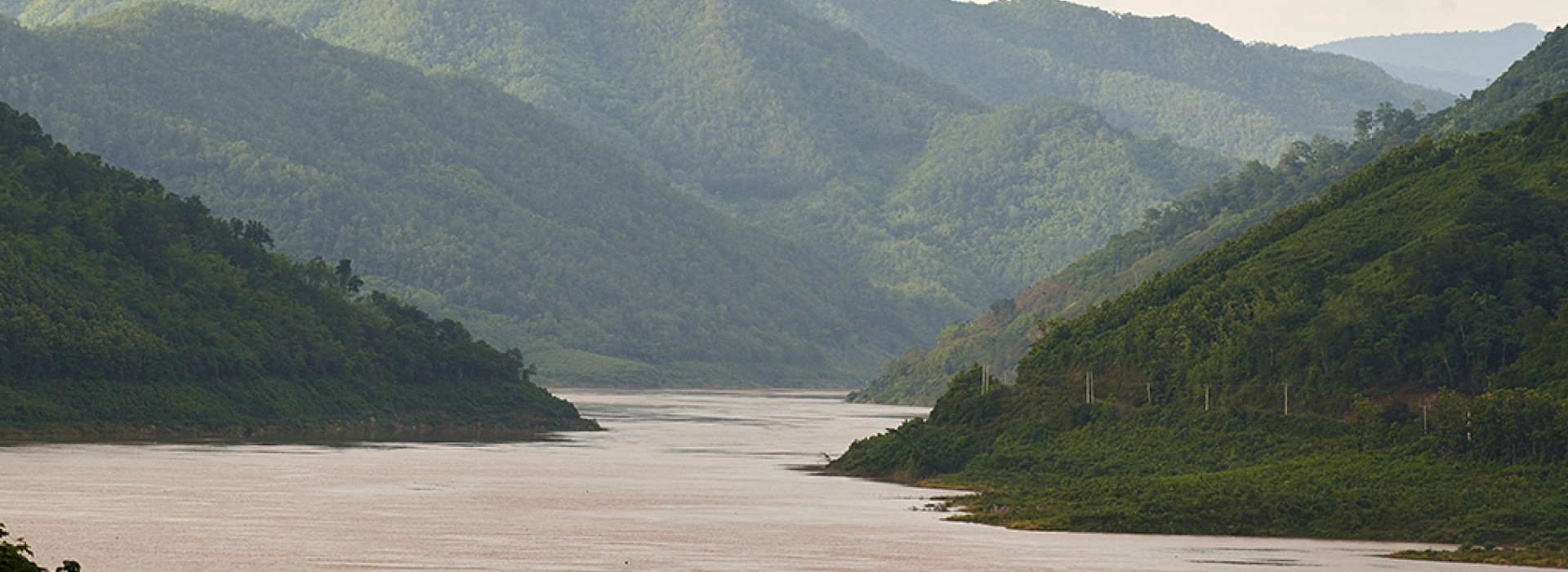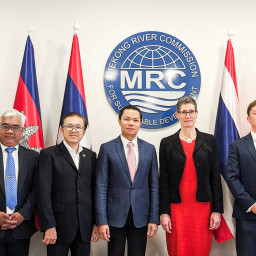MRC encourages all stakeholders to contribute to Pak Lay prior consultation process
The Mekong River Commission’s 5th Regional Stakeholder Forum will be a valuable opportunity for all stakeholders to come together to discuss, review, and influence the plans for the newly proposed Pak Lay hydropower project. At the MRC, we believe that inclusion and consideration of diverse views and interests serve to strengthen water cooperation in the basin, and we strongly encourage all interested parties to contribute to the discussion.
The proposed Pak Lay hydropower project is undergoing prior consultation as required by the MRC’s Procedures for Notification, Prior Consultation and Agreement (PNPCA). The PNPCA are a key obligation under the Mekong Agreement, which was established by the MRC member countries in 1995, and they are intended to further transparent and well-informed decision making on the proposed project.
The six-month prior consultation process kicked off on August 8 after Laos notified the MRC and its members of the country’s intentions to develop the project, which would be the fourth on the lower Mekong mainstream submitted under the prior consultation. The prior consultation process is designed to allow the notified countries to assess potential benefits and risks associated with the proposed project. It also aims to give the notifying country the opportunity to listen to legitimate concerns and make adjustments to avoid, minimise, and mitigate adverse impacts or bring about more equitable benefit sharing.
However, it is important to clarify the scope of the prior consultation process: It is not an approval process. No country has the right to veto another country’s use of water. On the other hand, no country has a unilateral right to move ahead without taking into account the other countries’ rights and concerns. In this way, the prior consultation process is underpinned by the MRC member countries’ mutual trust, shared interest in peaceful coexistence, and continued commitment to upholding the PNPCA.
For MRC, our mandate is to facilitate and inform the prior consultation process, including by supporting regional and national stakeholder consultations and by sharing scientific data and knowledge. The MRC seeks to address technical concerns, such as dam safety, fish passes, and more, within the scope of our mandate.
The prior consultation process has distinct value in that it is the only basin-wide water diplomacy platform for publicly evaluating hydropower projects proposed for the Mekong mainstream with potential adverse transboundary impacts.
Aside from facilitating discussion between governments, the process gives public stakeholders, including non-government organisations, civil society groups, and technical experts, the opportunity to ask questions and raise their concerns. The active participation of these groups does not imply their endorsement; rather, it is a mechanism for them to share legitimate concerns and make suggestions for improvements.
Based on our experience from past prior consultations, we know these exchanges add significant value, with rigorous inquiry helping to establish and maintain transparency and accountability. Contributions from diverse stakeholders have influenced ongoing projects and other initiatives, many of which will be discussed during the second day of upcoming forum.
For example, during the prior consultation process for the Xayaburi hydropower project, stakeholders raised concerns on the scheme’s impact on fish migration, sediment, and more. As a result, Laos and the developer made a significant investment to revise the project, including by improving fish passages. The MRC has reviewed the Xayaburi design changes, concluding that while the effects of the redesign cannot yet be fully assessed, the prior consultation process was instrumental in identifying shortcomings of the original design and that the developer has with the redesign made commendable efforts to avoid, minimise, and mitigate harmful effects.
Similarly, thanks to input from public stakeholders, the MRC is updating both its basin-wide hydropower strategy and design guidance for proposed dams on the Mekong mainstream to enhance benefits beyond national borders and minimise adverse transboundary impacts, while supporting water, food and energy security. While the strategy update is about half-way completed, the guidance is currently with the member countries for their final review, but summary notes outlining the details of these initiatives and other ongoing work are available on the MRC website for public review and comment.
I encourage Mekong member states and dam developers to take stock of the strategy and design guidance in their current form since it may take some time to reach final approval.
Finally, I personally want to also reiterate the invitation for all groups to participate in the prior consultation process and to contribute to the 5th Regional Stakeholder Forum, taking place on September 20 and 21 in Vientiane, Laos. Lao Prime Minister Thongloun Sisoulith considered the forum to be an important platform in his answer during the plenary session on a new vision for the Mekong region at the World Economic Forum last week in Hanoi.
While we recognize the limits of the prior consultation process, it is one that over the years has proven to establish practices and precedence that strengthen water development and cooperation. Without it, documentation and impact assessments would not be publicly available, independent reviews would not get commissioned, monitoring regimes would not get established, and we would not have opportunities to work together to achieve a better project.
During the forum, we will discuss the proposed Pak Lay project and ongoing initiatives to strengthen basin planning and environmental management. The main sessions will also be streamed live on Facebook, and discussions and comments, whether submitted in person or online, will be captured and publicly shared shortly after the event.
Please join us in our efforts to contribute to sustainable and equitable management and use of water in the Mekong River basin, for the people’s well-being and for the countries’ mutual benefit.
By Pham Tuan Phan, CEO of the Mekong River Commission Secretariat (Jan 2016-Jan 2019)





